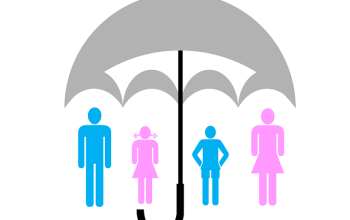General and Professional Liability Insurances are essential for businesses to protect against third-party claims of bodily injury, property damage, or financial loss due to professional negligence. Small Business Insurance often includes Public Liability Insurance, which covers accidents or injuries during events or activities involving the public. Product Liability Insurance specifically addresses post-sale claims related to product defects or harm caused by products. Commercial Liability Insurance offers broader protection encompassing various liability risks. These insurances are crucial for small businesses to operate with confidence, ensuring they have financial safeguards against unforeseen legal actions and potential liabilities that come with their operations. It's important for businesses to tailor their insurance coverage to their specific industry needs, considering the unique risks they face and the extent of protection required under General Liability, Professional Liability, Public Liability, and Product Liability Insurance policies to maintain their financial health and operational stability.
navigating the complexities of liability in today’s interconnected world is crucial for both personal and business endeavors. Third-Party Liability insurance stands as a safeguard against unforeseen legal claims, a critical aspect of comprehensive risk management strategies. This article delves into the nuances of Third-Party Liability insurance, exploring its role in various sectors such as General Liability Insurance for businesses, Professional Liability Insurance for service providers, and Public Liability Insurance tailored to small business owners. We will also examine specialized coverages like Product Liability Insurance and Commercial Liability Insurance to ensure diverse business activities are adequately protected. Understanding the distinction between Third-Party and First-Party insurance is key, as is recognizing how industry-specific needs influence coverage options. Real-life scenarios underscore the importance of this protection, while factors impacting cost and availability will be discussed to aid in making informed decisions. By understanding the claims process and selecting the right policy, individuals and businesses can rest assured that they are prepared for when the unexpected occurs.
- Understanding Third-Party Liability Insurance: Protecting Against Claims for Damages and Injuries
- The Role of General Liability Insurance in Safeguarding Business Operations
- Navigating Professional Liability Insurance: Coverage for Service-Based Businesses
- Tailoring Public Liability Insurance to Your Small Business Needs
Understanding Third-Party Liability Insurance: Protecting Against Claims for Damages and Injuries
Understanding General Liability Insurance is fundamental for any business owner or individual seeking to safeguard against legal claims for damages or injuries incurred by third parties. This type of coverage, often referred to as Business Liability Coverage, is a cornerstone of risk management. It extends protection to businesses and individuals alike, ensuring they are not held financially responsible for bodily injury or property damage claims made by others. For instance, if a customer slips and falls on the premises of a business, General Liability Insurance can help cover the costs associated with their medical expenses and any legal defense should the incident lead to litigation. Similarly, Professional Liability Insurance is tailored for individuals who provide professional advice or services, offering protection against claims alleging negligence or errors in their work that result in financial loss for clients.
Moreover, Public Liability Insurance is crucial for events or activities open to the public, providing a safety net against liability for accidents or injuries that occur during such engagements. Small Business Insurance packages often include this coverage, recognizing the diverse risks businesses face daily. Additionally, Product Liability Insurance is specifically designed to cover claims arising from products that cause harm post-purchase. This aspect of Third-Party Liability insurance is particularly relevant for manufacturers, distributors, and retailers, ensuring they are protected against the costs of defending against lawsuits and any resulting settlements or judgments. Lastly, Commercial Liability Insurance can be broader in scope, often including coverage for various types of liability risks that a business may encounter. Understanding the nuances of these policies and how they interact is essential for comprehensive protection. It allows individuals and businesses to operate with greater confidence, knowing they have a financial buffer against unforeseen third-party claims.
The Role of General Liability Insurance in Safeguarding Business Operations
General Liability Insurance plays a pivotal role in safeguarding business operations by providing financial protection against third-party claims and damages arising from everyday business activities. For small businesses, this form of insurance, often encompassed under Business Liability Coverage or Public Liability Insurance, is particularly crucial. It shields against potential lawsuits for property damage, bodily injury, or personal injury claims that can occur on business premises or as a result of business operations. This includes scenarios where a customer slips and falls on the business’s property, or if a product sold causes harm to a consumer.
Moreover, Professional Liability Insurance, another critical component for businesses offering professional advice or services, protects against claims alleging negligence or errors in that expertise. When a client believes they have suffered a loss due to a professional’s alleged mistake or substandard work, this insurance provides a defense and coverage for damages up to the policy limits. For businesses dealing with physical products, Product Liability Insurance is essential, ensuring protection against claims where a product causes injury or damage. Additionally, Commercial Liability Insurance, which often includes general liability, can be tailored to fit the specific needs of different industries, offering comprehensive coverage that can adapt as the business grows and evolves. Ensuring such coverage is not just a risk management strategy but an investment in the longevity and stability of the business’s operations.
Navigating Professional Liability Insurance: Coverage for Service-Based Businesses
For service-based businesses, understanding and securing appropriate liability insurance is a cornerstone of risk management. General Liability Insurance serves as a foundational shield against claims of bodily injury, property damage, or personal injury caused by your business operations. It’s crucial for small businesses to consider this coverage, as accidents can happen even in environments where products are not physically sold but services are provided. For instance, if a consultant accidentally damages a client’s property during a site visit, General Liability Insurance can offer financial protection against the resulting claim.
Delving deeper into specialized forms of liability insurance, Professional Liability Insurance, also known as Errors and Omissions (E&O) insurance, is tailored for service-based enterprises. This coverage protects against claims of negligence or harm due to professional advice, services, or recommendations that did not meet the expected or agreed-upon standards. It’s a critical component for any business offering expertise, as a single allegation of professional misconduct can be damaging to both reputation and finances. Whether it’s Public Liability Insurance, Product Liability Insurance, or Commercial Liability Insurance, ensuring comprehensive coverage is essential for businesses to navigate the complexities of their industry with confidence, knowing they are safeguarded against potential legal entanglements.
Tailoring Public Liability Insurance to Your Small Business Needs
When tailoring public liability insurance for your small business, it’s crucial to consider the specific risks associated with your operations. General Liability Insurance serves as a foundational layer of protection by covering claims arising from third-party bodily injury, property damage, and personal and advertising injuries. For businesses that offer professional advice or services, Professional Liability Insurance (also known as Errors and Omissions Insurance) is pivotal. It shields your company against claims related to professional negligence, errors, or breaches of duty.
As you assess your small business insurance needs, evaluate whether Business Liability Coverage encompasses the scope of protection required for your particular industry. Public Liability Insurance typically covers incidents where your business is liable for injury or damage caused to a third party, such as a customer or member of the public. It’s also wise to consider Product Liability Insurance, which safeguards against claims due to product defects or malfunctions post-purchase. For businesses engaging in manufacturing, retailing, or servicing products, this coverage is indispensable. Lastly, Commercial Liability Insurance can be tailored to address broader liability concerns that go beyond the standard public and product liability scenarios. By carefully analyzing your business activities and potential exposure to liability claims, you can ensure that your Public Liability Insurance and other complementary coverages are adequately robust to protect your small business’s financial stability.
In conclusion, Third-Party Liability insurance serves as a critical shield for businesses and individuals alike against the unpredictable nature of legal claims. Understanding the nuances of General Liability Insurance, Professional Liability Insurance, and Public Liability Insurance, among others like Product Liability Insurance and Commercial Liability Insurance, is essential for small business owners to tailor their coverage effectively. As detailed in this article’s exploration of these topics, having robust Business Liability Coverage ensures that both the financial and reputational consequences of accidents or injuries are manageable. For businesses, this means safeguarding operations against claims resulting from customer or client incidents. For individuals, it provides peace of mind when driving or participating in activities where third-party injury risks are present. In an ever-evolving economic landscape, securing the appropriate Small Business Insurance is not just a prudent measure—it’s a necessity for maintaining stability and trust in one’s business endeavors.



